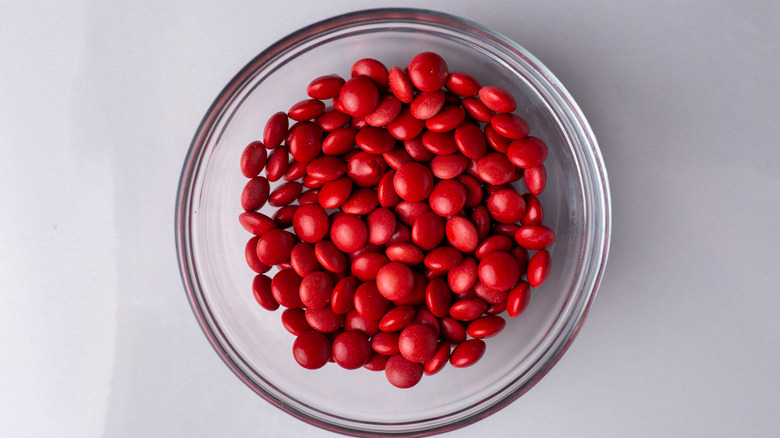Can A Common Food Dye Found In Popular American Snacks Lead To Digestive Problems?
According to 2015 data from the U.S. Centers for Disease Control and Prevention (CDC), an estimated 3 million Americans are reportedly affected by inflammatory bowel disease (IBD) – specifically, ulcerative colitis or Crohn's disease. Characterized by chronic inflammation of the intestinal tract, the development of IBD can stem from genetics, stress, use of certain medications, and more, notes the Cleveland Clinic. Now, a new animal study published in Nature Communications also suggests a link between the consumption of a popular red food colorant, known as Allura Red AC, and an increased risk of IBD.
Also referred to as Red 40, this red dye can be found in many everyday snacks lining shelves in grocery stores, gas stations, and movie theaters. Such examples include Doritos, Gatorade Fruit Punch, Skittles, and M&M's, reports Daily Mail. In the study, the McMaster University research team exposed both mice and human cells to samples of various popular food dyes, including blue, yellows, and red (per ScienceAlert). Out of all the dyes, Allura Red prompted the greatest release of colonic serotonin. Responsible for the bulk of our body's serotonin release, the hormone plays a critical role in gut function (via Daily Mail).
The impact of red food dye on mice gut health
Next, mice were fed either a control chow diet or a diet containing Allura Red for a period of 12 weeks, as per the study. Unlike the control mice, the rodents who were fed the Allura Red diet demonstrated mild gut inflammation (via ScienceAlert). In a public statement from McMaster University, the researchers explained that the dye showed to have several effects on the animal's intestinal tract, including disruption of gut barrier function, heightened serotonin release, and disturbances in the balance of the gut microbiome, thereby potentially increasing risk for colitis.
"This study demonstrates significant harmful effects of Allura Red on gut health and identifies gut serotonin as a critical factor mediating these effects," said senior study author Waliul Khan, professor in the Department of Pathology and Molecular Medicine at McMaster University, via the press release. "These findings have important implication[s] in the prevention and management of gut inflammation." Although the mice study cannot offer conclusive evidence regarding the effects of Red 40 dye on humans, Khan emphasizes the need for further study on the topic.


